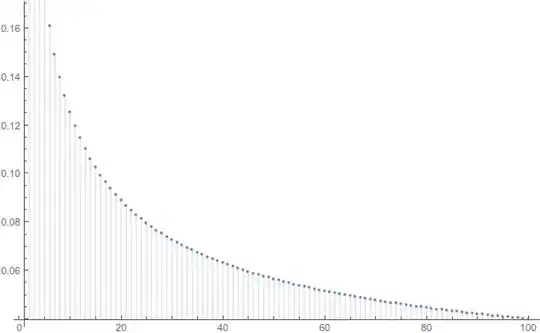I want to show that \begin{eqnarray} \frac{n^n}{n!e^n} \end{eqnarray} whether it is decreasing or increasing sequences or neither.
$\lim_{n \to \infty} \frac{u_{n+1}}{u_n}=\lim_{n \to \infty}(1+\frac{1}{n})^n\frac{1}{e}$.
Since $\lim_{n \to \infty}(1+\frac{1}{n})^n=e$, $\lim_{n \to \infty} \frac{u_{n+1}}{u_n}=1$
What can we say about the sequences according to $\lim_{n \to \infty} \frac{u_{n+1}}{u_n}=1$.
Can we say it is neither decreasing nor increasing ? Thank you for your help.
 ]
]